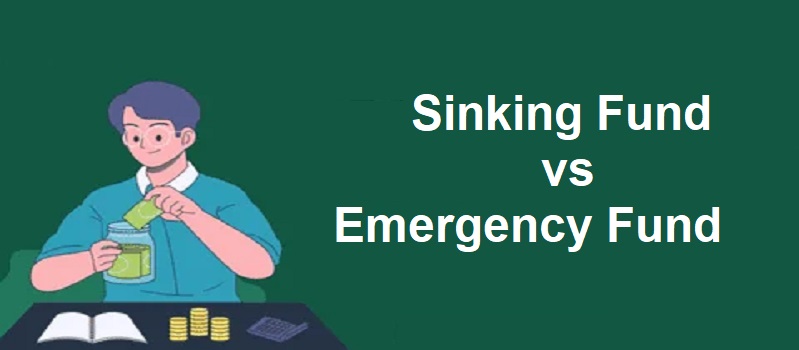Money troubles hit most of us at some point in life. Debt starts simply – you need cash now that you don’t have. Maybe your car breaks down, or your roof starts leaking. Perhaps medical bills land unexpectedly on your kitchen table. Whatever the cause, you borrow with good plans to pay it back. You can get a debt consolidation loan to pay off all your piling bills.
The path to financial strain often begins with small steps. A missed payment here, a new credit card there. Before long, what seemed like minor choices stack up into major worries. The interest rates kick in and add extra costs to what you already owe.
What Is a Debt?
Debt happens when you borrow money with a promise to pay it back. Most debts come with interest – an extra charge for using someone else’s cash. This cost can add up fast if you’re not careful with repayments.
People take on debt for many reasons. Some need funds for school, while others buy homes they couldn’t afford outright. Businesses borrow to grow, and people use credit cards to handle daily costs when money runs tight.
- Home loans use your house as a backup if you can’t pay.
- Credit card debt has no such safety net, which is why its interest rates often soar higher.
- Car loans, student debt, and medical bills also show up in many lives.
Debt can snowball quickly. Miss a few payments, and you might face late fees, a credit score drop, and stress that keeps you up at night. Yet not all debt spells doom, and some kinds help build wealth when used wisely.
|
Common Types of Debt (UK) | |||
|
Type of Debt |
Secured/Unsecured |
Typical Interest Rate |
Example |
|
Credit Card |
Unsecured |
20% – 35% APR |
Store or bank card |
|
Personal Loan |
Unsecured |
6% – 40% APR |
Online/bank loan |
|
Mortgage |
Secured |
4% – 7% APR |
Home loan |
|
Payday Loan |
Unsecured |
500%+ APR |
Short-term cash loan |
|
Overdraft |
Unsecured |
~39.9% EAR |
Bank current account |
|
Buy Now Pay Later (BNPL) |
Unsecured |
0%–39% APR |
Klarna, Clearpay |
Ways to Handle Existing Debt
1. Make a Budget
You can create a budget by listing all your income sources. Next, write down every expense you face each month. This simple step often reveals money leaks you never noticed before.
You can cut back on things you don’t truly need right now. Those daily coffee shop visits add up faster than most people realise. You can track every penny for a month using a notebook or a free app. Many people find they waste hundreds without even knowing it. The goal isn’t to live like a monk but to find extra cash.
2. Prioritize Debts
Not all debts carry the same weight in your life. Your housing costs should always top your payment list. No one thrives without a safe place to sleep each night. Utility bills come next since you need basic services.
After these needs, you can focus on debts with the highest interest rates. The debt avalanche method tackles high-interest debts first to save money. Some prefer the snowball approach, paying off smaller balances to build momentum.
3. Talk to Creditors
Most lenders would rather work with you than against you. You can call them before you miss payments, not after problems start. Many can offer lower interest rates or extended payment terms. Be honest about your situation and what you can afford.
You can have a plan ready when you make the call. Then, keep notes during these talks and get agreements in writing. This single step might save you thousands in the long run.
4. Use Balance Transfers or Low-Interest Loans
Moving high-interest debt to better terms makes perfect sense. You can look for zero-per cent balance transfer offers from credit card companies. Then, make sure to read the fine print about transfer fees and promotion end dates.
Debt consolidation loans can simplify your life with one payment. You can choose lenders like Onestoploansolution. You can look around for the best rates before you sign anything.
5. Get Free Debt Advice
Professional help exists and won’t cost you a penny. Debt charities have seen it all and know what works. They can help craft payment plans suited to your needs. These experts often spot options you might have missed. They can even talk to lenders on your behalf. Sometimes, an outside voice carries more weight in negotiations.
6. Formal Debt Solutions
Debt Management Plans offer structured repayment with frozen interest. Individual Voluntary Arrangements legally bind creditors to accept less. Bankruptcy provides a fresh start but impacts your credit score.
Debt Relief Orders help those with few assets and low income. These options have serious pros and cons to consider. You can seek expert guidance before choosing this path for your situation.
What Not to Do?
Your debt only grows bigger while you pretend it doesn’t exist. Some lenders will keep trying to reach you through calls and mail. This avoidance pattern damages your credit score for years to come.
You can take out new loans to pay off old ones, which creates a dangerous cycle. Payday loans especially trap people with their sky-high interest rates. You’ll end up owing much more than you first borrowed. This quick-fix thinking leads many into deeper money troubles than before.
Ducking calls from creditors might feel safer at the moment. But most lenders want to help find workable solutions. They prefer getting some money rather than none at all.
Making promises about payments you can’t truly afford backfires badly. It’s better to be honest about what you can manage each month. False hopes lead to broken agreements and damaged trust. Realistic payment plans stand a much better chance of success.
Warning Signs to Watch
- Sleep lost over money
- Bills are piling up unopened
- Using savings for basics
- Hiding debt from family
Conclusion
Many people find themselves caught in a tricky money maze. They work hard but still watch their debt grow each month. The math just doesn’t add up, no matter how they try. This creates stress that spills into all parts of life.
You’re not stuck forever in money troubles. The first step is facing the truth about what you owe. From there, you can build a path back to solid ground.

Having worked as a research analyst for 10 years, Archie developed his interest in consulting people struggling to manage money and now working as a Financial Consultant at Onestoploansolution. He is postgraduate in banking and accounting. For his a normal day starts from assessing the application and helping borrowers with getting more control over their finances. Archie Leo contributes to the finance blog of the company where he has written a lot of articles covering a wide range of topics such as budgeting, investing, saving and building wealth. His goal is to make people’s life easier with money.






